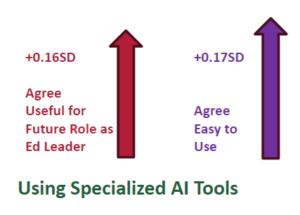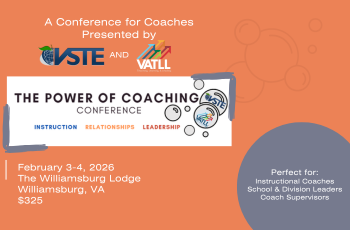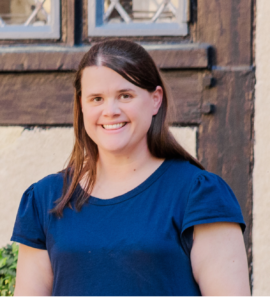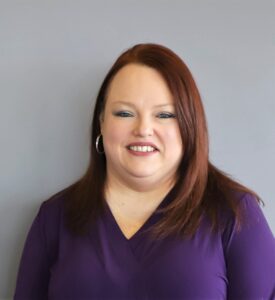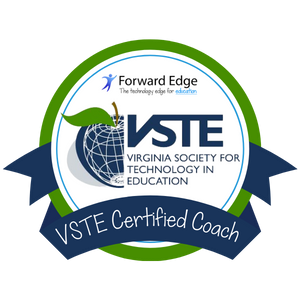Interested in AI tools for decision-making?
Join ARISE at George Mason University to Engage in the Use of AI Tools for School Improvement Planning
By Drs. Seth B. Hunter and Beth Davis
K-12 education has entered a new frontier where educators are exploring the power of artificial intelligence (AI) in innovative ways to enhance student outcomes. While many human-AI collaborations focus on efficiency, some venture into uncharted territory, exploring new and improved decision-making. The AI Informed Education Policy team at George Mason University is working with educational leaders to use AI to assist in making better school improvement decisions based on current, rigorous, and technical education research.
School improvement planning demands significant time and resources from school and district leaders, with many struggling to meet federal and state requirements for federally defined “evidence-based interventions.” Indeed, a recent Government Accountability Office (GAO) report found that many schools face challenges identifying and implementing compliant evidence-based interventions, conducting thorough needs assessments, and identifying resource inequities. These challenges persist despite dedicated efforts from district and school leaders.
At George Mason University, our preliminary workshops on AI-enabled tools showed great promise in reducing the time and resource demands of school improvement planning. When equipped with specialized AI tools, aspiring educational leaders reported significant benefits in both efficiency and effectiveness. These tools expedited the identification and evaluation of evidence-based interventions and saved valuable time. Dozens of future education leaders trained at George Mason are now learning to use AI tools for efficient and equitable school improvement planning. This is a testament to the potential for growth and learning in this field. Districts that understand and help shape these emerging practices will be better positioned to support and leverage the skills of their leadership pipeline.
Aspiring Education Leaders Use of AI-Enabled Tools for School Improvement Planning
This project, referred to as ARISE (AI for Responsive, Inclusive School Enhancement), brings district leaders across Virginia and beyond to transform school improvement planning from a compliance exercise into a catalyst for meaningful change. Our current participants, which include districts serving 10,000 to 100,000 students, are a testament to ARISE's rich opportunities for cross-district learning and collaboration.
We are currently accepting additional divisions to be part of this exciting initiative to be at the forefront of AI and school improvement planning. There are many benefits for your division to join, including:
 Access cutting-edge AI tools that streamline the identification of evidence-based interventions
Access cutting-edge AI tools that streamline the identification of evidence-based interventions
 Connect with peers across districts to share challenges and solutions in school improvement planning and implementation
Connect with peers across districts to share challenges and solutions in school improvement planning and implementation
 Shape the development of AI tools and processes that address your specific district needs
Shape the development of AI tools and processes that address your specific district needs
 Receive affiliate faculty status at George Mason, providing access to comprehensive digital research resources.
Receive affiliate faculty status at George Mason, providing access to comprehensive digital research resources.
If you are interested in getting started or would like to schedule time to discuss the initiative, contact Dr. Beth Davis at edavis32@gmu.edu.
